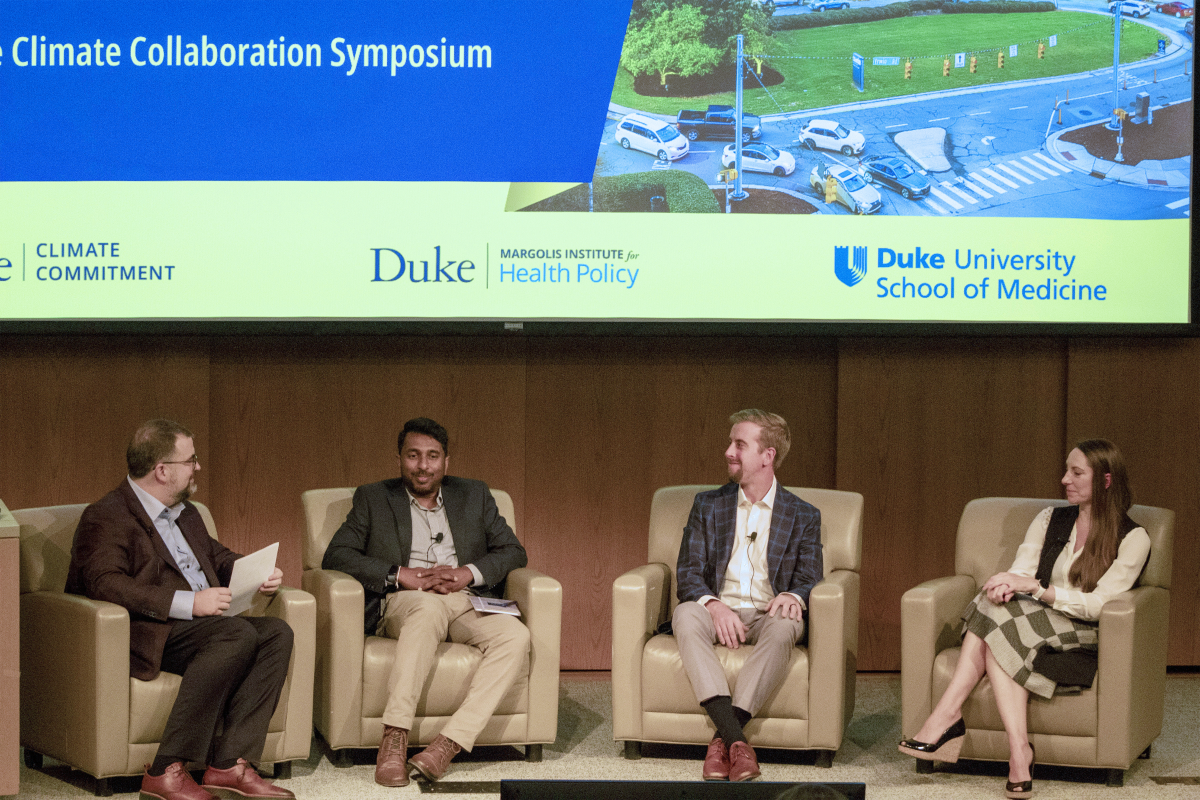Researchers uncover how a killer fungus quietly invades the brain
Study shows a deadly fungus gets a two-week head start on the brain’s defenders. It points to a new strategy for boosting the immune system to fight Cryptococcus.
Interactive approach transforms psychiatry education for medical students
Rebekah Jakel, MD, PhD, led a refresh of the psychiatry curriculum for first-year MD students, shifting from a lecture-based format to one that engages students in analyzing and discussing a variety of case studies.
Why muscles weaken with age — and how exercise fights back
Exercise activates longevity genes that lower DEAF1, allowing a major muscle-growth pathway to return to normal and turn back the clock on aging muscles.
How to heal a broken heart
Nenad Bursac, PhD, is growing beating human heart tissue in the lab to test a gene therapy that repairs heart tissue damaged from heart attacks.
10 groundbreaking advances that grew out of HIV research
A new Nature Medicine paper highlights how 40 years of HIV research reshaped far more than the fight against one virus. What began as an urgent global health response helped fuel breakthroughs that now power treatments for cancer, tuberculosis, hepatitis, and even COVID-19 — thanks to sustained U.S. investment and collaboration across universities, industry, and government.
Specialized breathing tubes offer no advantage in emergency intubation
Study finds breathing tubes specially designed to reduce infections in patients on a ventilator didn’t perform any better than standard tubes when used in emergency situations.
Invented at Duke 2025: Technologies shaping the future beyond campus
This year's Invented at Duke event featured innovations demonstrating the breadth of Duke innovation – from bioengineering and materials science to medical devices and environmental technology – and the translational strength behind them.
The truth about “cheat meals” — and what we get wrong about them
Eric Trexler, PhD, a wellness fellow at Duke University who collaborates with School of Medicine researchers, recently co-authored a study in Nutrition Reviews examining the surprisingly complicated world of cheat meals. He breaks down what people misunderstand most about these meals, what the science shows, and how mindset matters more than the calories on the plate.
"Are you going to use a cheat meal because there's an event that day like Thanksgiving dinner with family or is the cheat meal the event?," Trexler said.
Gift Funds Duke Regional Hospital Renovations to Benefit Patients, Staff, Community
A refurbished lobby and modernized auditorium now welcome patients, staff, and community members to Duke Regional Hospital, thanks to a generous $1.1 million gift from the Durham County Hospital Corporation. The investment marks another milestone in their longstanding partnership, and the renovations help make Duke Regional the best place possible for health, hope, and healing.









